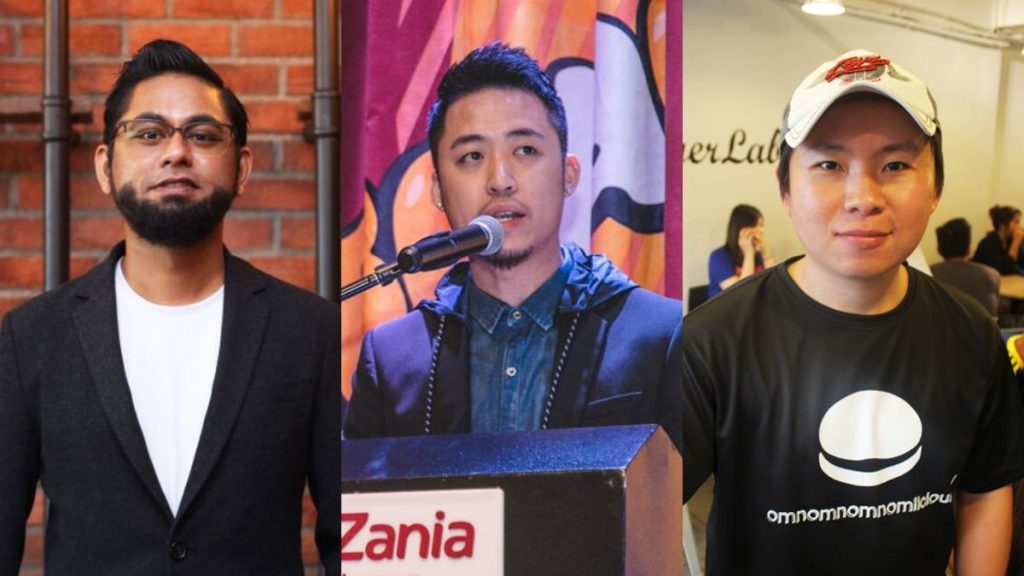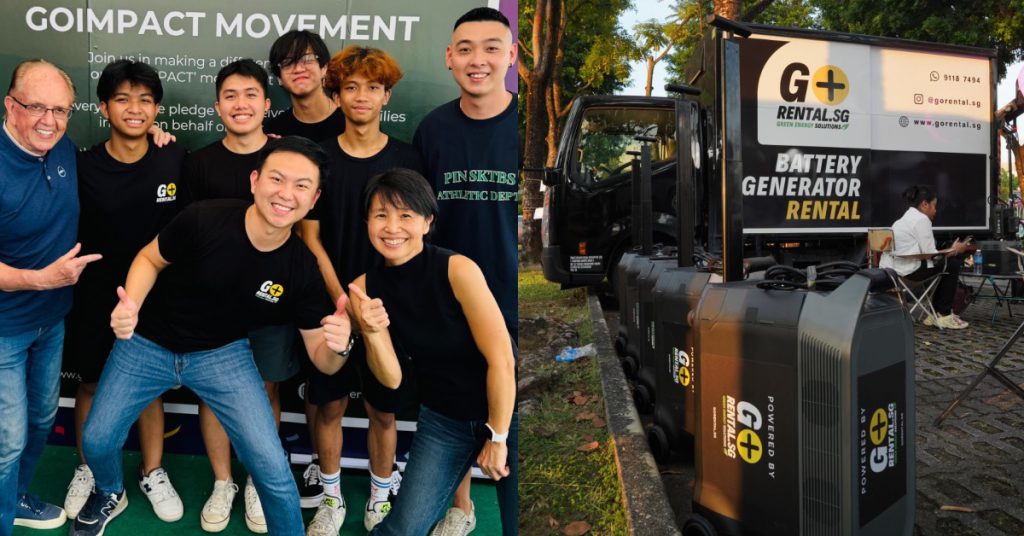Author’s Blurb: We’ve all been pushed into a corner before due to circumstances out of our control, yet risen to the challenge and pulled through. The MCO has put a lot of companies to the test, and while some are buckling, they’re also seeing this as an opportunity to pivot.
There appears to be no strict definition as to what a business pivot really means—ask 2 different people and they might have 2 different understandings of it.
However, the general consensus of its meaning seems to be when a company realises that its products aren’t meeting the needs of its intended market and thus switches strategies to focus on another market, or roll out a new product offering.
Sometimes, it can also mean adding on a new business strategy to penetrate another market while the opportunity is ripe.
The 7 companies we reached out to have all pivoted during the MCO in one way or the other, and they are:
- Cultiveat
- myBurgerLab
- MyeongDong Topokki
- Orange Esports Cafe
- Shop Hubby
- Tealive
- ZeptoExpress
Beyond what they’re rolling out, we wanted to know how they did it and whether these pivots will be here to stay.
1. Cultiveat
Cultiveat practices precision farming where produce is grown in nearby urban farms and when orders are made, the produce will be delivered as live plants.
Editor’s Update: Parts of the above paragraph have been edited to reflect better accuracy.

Its main business consisted of B2B deliveries to restaurants and cafes. However, CEO and co-founder John-Hans told Vulcan Post that orders have significantly decreased with the MCO in place.
This has left Cultiveat with an oversupply of vegetables which had been grown to order.
Rather than letting them go to waste, the team thought fast and pivoted in 2 days. “My team quickly put together a page on our website to sell our veggies to at-home customers,” John-Hans said.
Their friends who were bag suppliers pitched in to provide a temporary form of delivery packaging, and to date, they’ve served about 2,000 customers at home.
However, MCO related challenges persisted, with a few of them being the lack of workers to pack and deliver to their distribution hubs, and the short time in which they had to launch their B2C service.
So, their small management team had to do the packing and delivering while handling customer service and administration work, and they’re working hard to build awareness and customer acquisition as well.
Despite these challenges, John-Hans revealed that this pivot is here to stay. When the MCO gets lifted, they’ll focus on both B2B and B2C.
2. myBurgerLab
In 2 weeks, myBurgerLab had to decide on the packaging and collaborative partner for their ‘mBL At Home’ pack.

One of their inspirations behind it was Wild Sheep Chase, a café that made a take-home package of sourdough bread, cream cheese, ice cream and coffee beans.
Then customers who lived too far away for pick-up or GrabFood delivery asked myBurgerLab if they would do a take-home kit as well, showing the team that there was demand for it.
Challenges-wise, Renyi said that there weren’t too many as they had a centralised kitchen packed with ready-to-use food items.
All it took then was downsizing those packets into a take-home size. “Given our current situation, we’re not at our maximum capacity which means that we have a lot of free time on our central kitchen side, so this is an extra project for them,” Renyi added.
However, only 30 packs will be sold per day since they’re not looking to profit off this.
As for whether they’ll continue doing this after the MCO, he said that as long as there’s demand he’ll be happy to serve. But in the case that their regular sales peak once again and they lose their extra time, he’ll put it on hold.
3. MyeongDong Topokki
MyeongDong Topokki is a local Korean F&B chain and during the MCO, they released MDT Apron, a 3-day meal kit delivery service.
CEO Vincent Lua shared that the concept had been on his mind for the past half a year, but they held off on executing it due to the uncertainty of the market’s readiness for it.

The MCO finally presented itself as the right time to launch, and it took the team 1 week to set up everything and begin sales.
One of the main challenges they faced was that Malaysians aren’t too familiar with cooking at home as compared to dining out, but the team believes that they’ve now got the advantage of being the first local Korean F&B business to do this.
MDT Apron is a strategy that will stay even after the MCO ends, with Vincent saying, “We believe that the pandemic would create a switch on customer purchasing behaviours. Customer preferences will skew towards being healthier.”
4. Orange Esports Cafe
Orange Esports Cafe is an esports cafe operator with 32 outlets in Malaysia. The MCO completely shut down their usual operations where customers were able to visit their outlets for gaming purposes.
Upon assessing the current market and business situations, they landed on the STAY@HOME Initiative.

“During this period, a lot of our regular customers weren’t able to enjoy their time as they would in our esports establishments—so we decided to give them the same enjoyment in the comfort of their own home, with gaming PC delivery,” Adrian, its Managing Director told us.
It took 4 days to roll out, and to date, they’ve exhausted all their available rental units. Their pre-orders have also been fully booked until the third week of April.
Since they’ve never done gaming PC rental and delivery, their two main challenges were:
- To craft delivery and returning processes to ensure secure handling, as well as policies and agreements for customers to ensure they had sufficient and reliable data of each one,
- Coming up with a new pricing strategy for the home rentals, since their esports cafe business charged on an hourly basis and they now needed to ensure that each package was priced according to their consumer bracket.
Adrian shared that there’s a possibility of continuing this strategy after MCO, as this new business angle has similarities to their future plans and they can see viable integration points for it.
Editor’s Update: The above paragraphs have been edited to reflect greater accuracy where the direct quotes were mistakenly attributed.
5. Shop Hubby
Shop Hubby is a platform that brings traditional brick & mortar stores online—not for ecommerce, but to encourage foot traffic in these stores.
As you can expect, foot traffic has dropped during MCO, so these merchants are struggling to close sales for their Raya stock.
The team at Shop Hubby then came up with the idea of gathering these local shops to create an online campaign called ‘Shop Hubby Raya Bazaar’.

They’d been visualising the concept since the first week of MCO, and by the second week, they had signed up 50 shops to the online bazaar for a mere fee of RM10/shop.
“We successfully launched it this week (April 8) and will continue to expand our network to reach out to local shops in different states,” founder KJ said.
One would think that with offline shops and offices being closed and having outdated details online would have been a challenge for communication, but the team had ways of getting around that via different mediums like mailboxes and association connections.
The online bazaar will definitely be running for some time after the MCO, and KJ foresees it staying until Hari Raya in May 2020 at least.
6. Tealive
In 2 weeks, Tealive launched its DIY bubble tea kits after CEO Bryan Loo took to Instagram to gauge customer interest in the concept. The response was overwhelming, he recalled in an interview with Marketing Interactive (A+M).
Tealive then opened an online store dedicated to selling the DIY kits, and by April 1, they had sold about 1,000 kits.

The thought process that went into creating the kit was to design an experience that would fascinate people in a time like this, when everyone was stuck at home with too much time on their hands.
With Tealive having a good brick & mortar business model, Bryan hadn’t seen a need for an ecommerce business format before this.
“Challenges to pivot into new and unknown spaces are real, and reaching out to larger audiences in an online space requires a completely different operating model,” he told Vulcan Post.
But now that they’re in the space and learning new things daily, Bryan plans to keep the DIY kits up.
“Right after MCO, we will go full-swing into building a much more sophisticated e-store for tea lovers where they can access everything bubble tea inspired,” he told us.
7. ZeptoExpress
You probably know of ZeptoExpress as an on-demand delivery service for parcels, but the MCO has given them a new opportunity.
It happened when CEO Izzairi was trying to purchase groceries, but couldn’t find an online grocery store with available delivery slots.
He then realised ZeptoExpress could fill this gap, and began brainstorming solutions with co-founder Syairil.
Within 3 sleepless nights, their team had an app and website built under the name ZeptoStore.

After a few days of operating in Klang Valley they expanded to Seremban and Malacca City, with JB and Penang being next on their list.
Since its launch on March 25, they’ve served about 2,000 customers.
However, product stock depends on the stores that they work with, and these stores are struggling with their own supplier logistics.
Because ZeptoExpress’ forte isn’t in handling grocery deliveries, they’ve also faced problems in ensuring perishable goods are delivered within a specific duration.
With a spike in orders per day, ZeptoStore faces a lot of refund requests too, so they’re trying their best to speed up their overall refund process.
Once the MCO is lifted, Izzairi said that they’d love to continue ZeptoStore. “We do see the need for online groceries rising, and the trend of purchasing online groceries will continue to double even after the pandemic is over,” he predicted.
Bottom Line: It’s interesting to see how the MCO has forced these businesses to innovate, or at least fast-track the launch of their plans. With the success they’re having with these solutions currently, I’m curious to see how demand will shift (whether positively or negatively) once the MCO gets lifted.
- You can read more about what we’ve written on the MCO here.
Featured Image Credit: ZeptoExpress / Bryan Loo / Leaderonomics













